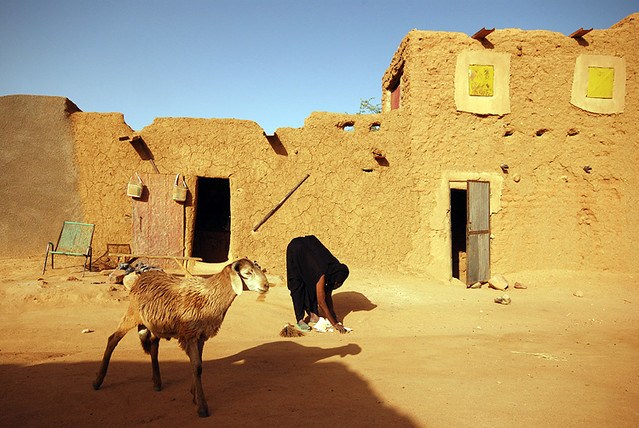“Seriously though, where are the African refugees’ organs?” asked Nivine, a 36-year-old with chronic kidney disease – non-rhetorically. Ever since she has heard about the bustling human trafficking and organ trade in Sinai back in 2011, Nivine wondered where she could get her hands on a kidney, should she need one later. And later she did and was forced to resort to post a Facebook note with her blood type and cell number to find a donor. (Donor here means someone who will “donate” their kidney to her, if she donates 30-50,000 Egyptian pounds to their bank account.)
Nivine’s question, though horribly misdirected and intentioned, is a pertinent one. After all, there are only 35 hospitals licensed and (in some cases barely) qualified to perform organ transplants nationwide and those 35 only transplant kidneys, livers and corneas (which happen to match the organs stolen from the refugees); and there is presumably a limited number of surgeons with the know-how to remove organs without damaging them and access to ambulances with refrigeration units to preserve them; how difficult could it possibly be to track down the doctors involved?
The police, however, seem to have done nothing to ascertain the level difficulty. According to the coordinator of the liver transplant surgical teams of Kasr Al-Aini and Dar Al-Fouad, two of the biggest hospitals in Egypt, Mohamed Negm, the police never so much as paid them a visit. Except for the times they needed to arrest and track down injured protesters after clashes, of course. Apart from that and allowing the self-righteous TV host, Reham Saeed, yell at an alleged organs’ broker in their presence, the police continue the same hands-off, indifference-dripping policy the newspapers who run the “donation” ads and the hospitals inside which they take place follow.
Most of the organs used in transplants, in Cairo at least, seem to come from Egyptians. About 60% of those organs are supplied by generous strangers the same way McDonald’s gives away Happy Meals in exchange for banknotes and the rest are donated, in the conventional sense of the word, by relatives, according to Negm. Anything better than educated estimations is impossible to find given the general aversion to counting and archiving that seems to permeate some sectors of government. These donations cost anywhere between 20-50,000 pounds (if it is a kidney and the patient is not obviously wealthy and believed to be capable of paying more) and 30-70,000 (if it is a liver lobe and the patient is not obviously wealthy and believed to be capable of paying more), but it can vary considerably depending on how desperate both the patient and the donor are, explains Omar Safwat, another Kasr al-Aini surgeon. “Sometimes (the donor) would wait until last minute, when he is in the surgical gown and (then threaten to) back out unless he gets more money,” he said, going on to note that people can be very greedy.
That being said, a dismissive Negm maintains that the new law regulating organ transplantations has kept the practice clean and claims to the contrary are more or less “tabloid talk,” despite the fact that according to him the majority of them are still bought and that having that knowledge and operating anyway should, theoretically, earn him up to 25 years in prison and debarment, according to article 5 of the very law he is praising. “The donor signs a consent form saying they are donating, not selling, in the presence of a witness! Who also signs [a statement corroborating that]!” Negm continues, shrugging confidently as if the idea of someone lying is unfathomable. “The surgeon is there to work, where you get the organ from is not his problem,” he concluded.
“It doesn’t matter what the law says,” said Salma, the wife of a liver patient, with a hand wave. Chewing gum like it crossed her, Salma went on to paraphrase Negm, saying that doctors don’t care where you get the liver from so long as they can pretend to not know and charge you 230,000 pounds for it. Sitting next to Salma in the corner-turned-waiting-room for liver patients in Kasr Al-Aini, was an old woman who didn’t know how much the operation her husband needs costs until Salma disclosed the price. The woman asked Salma to repeat the figure slowly, but slapped herself before she did. Meanwhile, her yellow husband sat next to her with childlike stillness only moving his arm to insert biscuits into his mouth and his head to follow the behinds of every female that walked in front of him with curious disinterest. Sometime before the woman slapped herself, another patient came very close to doing the same after his organ broker informed him that the 70,000 he was paying him was not enough – in hallway full of doctors and nurses.
As time crawled by, more and more patients got up, switched seats and tried to find out who had it worst. Salma’s husband lost mobility six months ago and the donor she got after posting an advertising in a national newspaper turned out to have too fat a liver. Rania’s father shut his eyes and faked sleep every time he was addressed. Mariam knew her family would ask for money to donate a lobe and was scandalized by my neckline. The old man with the distended belly looked like he was about to pitch his story when a woman with round cheeks squeezed red by a purple scarf demanded to know who I am and if I was there to make it look like Egyptians are selling their organs and that the government is incompetent and the hospital is mistreating them. Because, for my information, they haven’t been waiting here for long. In fact, they came four hours early on purpose. “There is a trend in the media trying to defame Egypt out there [in the West, presumably],” she told her friend and a passing doctor who tried to explain that I was not a spy, before turning back to me to inquire about the nationalities of my readers.
“For the last time [it wasn't], who sent you?” She fired one question after the other ignoring the person who mumbled something about my not needing to make Egypt look bad, because it is bad, and denying her supporters the chance to echo her questions and me the chance to answer them. After a few forceful denials, the woman eventually settled down to being a glaring, rather than a shouting, cylinder of anger.
Something that might facilitate matters for the Paranoid Cylindrical Lady and other patients, Safwat suggested over shisha earlier, would be resorting to the organs of beating heart cadavers (brain dead patients) without needing a written permission from said patient prior to their death, which the government will never agree to because they know that doctors would be declaring patients brain-dead left and right, he says.
There was a similar arrangement in the early nineties that involved death row inmates. They would be asked for permission to resuscitate them after their execution to remove their organs and it worked for a short while before al-Azhar pulled the plug on it, arguing that the inmates are in no condition to give consent.
This, of course, is not the only bone al-Azhar had to pick with transplants. The most popular arguments they made, which still exist now even among doctors are: “Your organs are Allah’s gifts, they are not yours to give away,” “sanctity of the dead > saving lives” and “brain death is a lie doctors tell to kill patients they don’t like and save the ones they like and get rich.” However, these arguments are largely ignored after Al-Azhar officially approved it, much like the stray cats that run wild and feed on placentas in the maternity ward.





